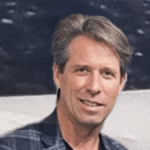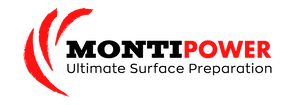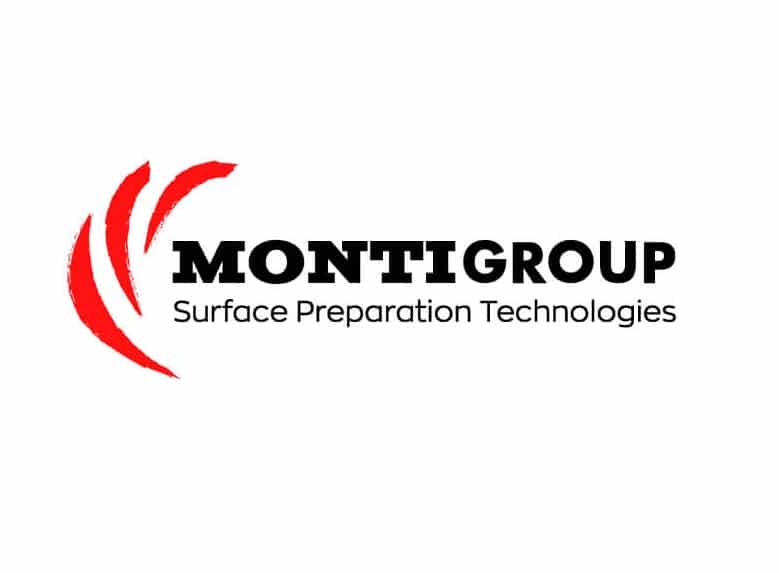The different tools for surface conditioning
Conditioning, machining and cleaning metal surfaces exists in many ways. All these forms of surface preparation have one and the same purpose: to remove coatings, mill scale, rust and other dirt, in order to extend the life of a steel object. Often this is done prior to the application of a (possibly new) coating. To do this properly, it is important that the surface is cleaned and prepared so that an adhesive layer is created in the surface. There are various surface conditioning tools to accomplish this. But what are these tools, how do they work, and how do MontiPower power tools play a role in this?
Sandblasting as a surface conditioning tool
One of the best known and most widely used tools for surface conditioning is abrasive blasting. There are different ways of abrasive blasting, which are broadly the same way of working. In surface conditioning with abrasive blasting, an abrasive combined with air is applied at very high pressure to the surface. Because of the high speed at which this happens, the impact of the abrasive causes coatings and dirt to easily come off the object. Originally, the most widely used method of abrasive blasting was sandblasting. The grain of sand had such a good abrasive effect that sandblasting was used in many industries. Over time, however, several disadvantages of sandblasting came to light. For example, sandblasting not only proved to be very harsh on the surface, but also very harmful to human health. It caused sandblasting to be banned in many countries worldwide.
Surface conditioning with other blasting media
After sandblasting was banned in many countries, alternative abrasives for surface conditioning had to be sought, such as bead blasting, wheel blasting and vacuum blasting. These alternatives were found in blasting with glass, corundum and plastic, among others. To this day, these materials are still used as tools for surface conditioning. Yet, despite the fact that these methods of abrasive blasting do not have the dangers of sandblasting, they themselves have their drawbacks. First of all, abrasive blasting is a difficult job to perform as an individual. To ensure the best possible surface finish, it is therefore recommended that this always be done by a professional, which makes abrasive blasting relatively expensive. Also, with abrasive blasting, the abrasive has a very aggressive effect on the surface. This removes coatings, dirt, rust and mill scale in a very effective way, but because of the high speed at which the abrasive is applied to the surface, damage to the object can easily occur. Because of this, vapor blasting, in which water is added to the abrasive, is often used when preparing more fragile surfaces. However, this method of abrasive blasting is not powerful enough when there is heavy soiling.
The tools for surface conditioning from MontiPower
MontiPower’s Bristle Blaster® and MBX® are the revolutionary tools in the field of surface conditioning. The power tools combine all the good things of abrasive blasting with a patented technique, which responds to all the disadvantages they bring. For example, the Bristle Blaster® and MBX® are hand-held tools that are easy to use yourself. In this way, you are no longer dependent on external parties for the conditioning of surfaces and can easily remove coatings, paint, rust and mill scale yourself. Due to the effective operation of the tools, surface conditioning will be a piece of cake from now on. Moreover, the specially designed technology of the tools not only ensures thorough removal of dirt; it also creates a surface profile, which is comparable to the adhesion layer created by the various blasting methods. With our wide range of rotary brushes, you will always find a suitable method of surface conditioning for your own specific situation at MontiPower. It makes the Bristle Blaster® and MBX® the perfect alternative to sandblasting and other methods of abrasive blasting.
How do MontiPower’s surface conditioning tools work?
MontiPowers powertools for surface conditioning work with a rotating brush, which features specially designed curved tips. The rotation of the brush and its points ensures that different types of metal surfaces can be cleaned and prepared quickly and easily. In this rotation of the brush, the bent points are briefly stopped by the so-called “accelerator bar”. This causes a small hiccup in the rotation, so that the bent brush tips – partly due to the high speed – are released with extra large force into the surface. Due to this high force, the brush tips of the Bristle Blaster® and MBX® are immediately released upon contact with the surface. This initially ensures highly effective and precise removal of coatings, rust, mill scale and other dirt, but this is not the only thing. The violent impact of the brush tips into the surface also creates the profile that can be used as an adhesion layer for a new coating.

Frits Doddema
Author of MontiPower®
Leadership | Sales | Marketing | Development
He is passionate about alternating solutions which make a true difference. Nothing is impossible is his credo. To make the impossible possible, Frits and the management believe in just one idea to make it happen and to turn the company in a great firm. The innovative approach for game-changing blasting and paint solutions is hands-on keeping in mind the difficult field circumstances for operators, respecting nature and long term costs. The mission is to avoid any disagreement over quality of prep work and coating. Frits and his team push for non-hazardous long term corrosion prevention solutions to overcome any hassle out of a coating job ensuring the best possible bond. The world’s best coatings deserve the world’s best surface preparation. Like in daily life, preparation is everything. From different perspectives like Safety, Health, Ergonomics, Productivity, Recyclability, Co2 neutrality of the plant and the coating process, Substrate Compatibility, Corrosion Resistance, Frits and team are driven to come with improved unique contribution solutions to existing and new end markets.

